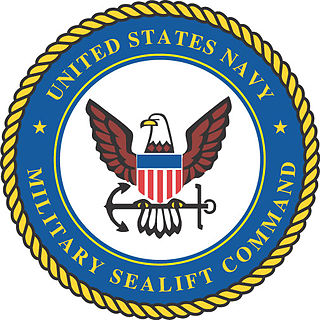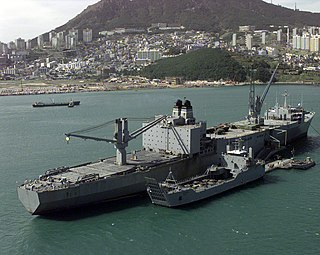| Look up Algol or ALGOL in Wiktionary, the free dictionary. |
Algol is a star system.
Contents
Algol or ALGOL may also refer to:
| Look up Algol or ALGOL in Wiktionary, the free dictionary. |
Algol is a star system.
Algol or ALGOL may also refer to:
Algol variables or Algol-type binaries are a class of eclipsing binary stars that are related to the prototype member of this class, β Persei from an evolutionary point of view. An Algol binary is a semidetached binary system where the primary component is an early type, main sequence star that does not fill its Roche lobe, while the cooler, fainter, larger, less massive secondary component lies above the main sequence in a Hertzsprung–Russell diagram and fills the Roche lobe. Early in its history, the secondary star would have been more massive, evolving first to overfill its Roche lobe. After rapid mass exchange, the lobe-filling star became less massive than its companion.
Elliott ALGOL was an ALGOL 60 compiler for the Elliott 803 computer. It was implemented by Tony Hoare and others. It differed slightly from the reference version of Algol, particularly in the supported character set. First released in February 1962, it is believed to be the first implementation of an ALGOL 60 compiler in a commercial context and was an unexpectedly popular product for the company.
Dartmouth ALGOL 30 was a 1960s-era implementation, firstly of the ALGOL 58 programming language, then of ALGOL 60 for the LGP-30 at Dartmouth College, hence the name.
ALGOL W is a programming language. It is based on a proposal for ALGOL X by Niklaus Wirth and Tony Hoare as a successor to ALGOL 60 in IFIP Working Group 2.1. When the committee decided that the proposal was not a sufficient advance over ALGOL 60, the proposal was published as A contribution to the development of ALGOL. After making small modifications to the language Wirth supervised a high quality implementation for the IBM/360 at Stanford University that was widely distributed.
ALGOL 68-R was the first implementation of the Algorithmic language ALGOL 68.
ALGOL 68RS is the second ALGOL 68 compiler written by I.F. Currie and J.D. Morrison at the Royal Signals and Radar Establishment. Unlike the earlier ALGOL 68R it was designed as a portable compiler and implemented the language of the revised Report.
The language was originally called Z70 and was subsequently morphed into ALGOL 68. ALGOL68C was initially built to develop and program the CAMbridge ALgebra system a.k.a. CAMAL. The initial compiler was written in PSYCO that was implemented by J.H. Mathewman at Cambridge. The compiler and language were initially developed by Stephen Bourne and Michael Guy as a dialect of ALGOL 68.
JOVIAL is a high-level computer programming language similar to ALGOL, specialized for the development of embedded systems.
MAD is a programming language and compiler for the IBM 704 and later the IBM 709, IBM 7090, IBM 7040, UNIVAC 1107, UNIVAC 1108, Philco 210-211, and eventually the IBM S/370 mainframe computers. Developed in 1959 at the University of Michigan by Bernard Galler, Bruce Arden and Robert M. Graham, MAD is a variant of the ALGOL language. It was widely used to teach programming at colleges and universities during the 1960s and played a minor role in the development of CTSS, Multics, and the Michigan Terminal System computer operating systems.
ALGOL 60 is a member of the ALGOL family of computer programming languages. It followed on from ALGOL 58 which had introduced code blocks and the begin and end pairs for delimiting them. ALGOL 60 was the first language implementing nested function definitions with lexical scope. It gave rise to many other programming languages, including CPL, Simula, BCPL, B, Pascal and C.
ALGOL is a family of imperative computer programming languages, originally developed in the mid-1950s, which greatly influenced many other languages and was the standard method for algorithm description used by the ACM in textbooks and academic sources for more than thirty years.
ALGOL 58, originally known as IAL, is one of the family of ALGOL computer programming languages. It was an early compromise design soon superseded by ALGOL 60. According to John Backus
"The Zurich ACM-GAMM Conference had two principal motives in proposing the IAL: (a) To provide a means of communicating numerical methods and other procedures between people, and (b) To provide a means of realizing a stated process on a variety of machines..."
The Navy Electronics Laboratory International ALGOL Compiler or NELIAC is a dialect and compiler implementation of the ALGOL 58 programming language developed by the Naval Electronics Laboratory in 1958.
Algol: The Magazine About Science Fiction was published from 1963–1984 by Andrew Porter. The name was changed to Starship in 1979.

Algol: Tragedy of Power is a 1920 German science fiction film about an alien from the planet Algol.

Final Fantasy XI, also known as Final Fantasy XI Online, is a massively multiplayer online role-playing game (MMORPG), developed and published by Square as part of the Final Fantasy series. Designed and produced by Hiromichi Tanaka, it was released in Japan on May 16, 2002, for PlayStation 2 and Microsoft Windows-based personal computers in November of that year. The game was the first MMORPG to offer cross-platform play between PlayStation 2 and personal computer. It was also the Xbox 360's first MMORPG. All versions of the game require a monthly subscription to play.
| This disambiguation page lists articles associated with the title Algol. If an internal link led you here, you may wish to change the link to point directly to the intended article. |
Orion may refer to:

Phantasy Star is a role-playing video game (RPG) developed by Sega and released for the Master System in 1987. One of the earliest Japanese RPGs for consoles, Phantasy Star tells the story of Alis on her journey to defeat the evil ruler of her star system, King Lassic, after her brother dies at his hands. She traverses between planets, gathering a party of fighters and collecting the items she needs to avenge her brother's death and return peace to the star system. The gameplay features traditional Japanese RPG elements including random encounters and experience points. All the characters have predefined personalities and abilities, a unique element compared to the customizable characters of other RPGs of the era.
In computer science, a high-level programming language is a programming language with strong abstraction from the details of the computer. In contrast to low-level programming languages, it may use natural language elements, be easier to use, or may automate significant areas of computing systems, making the process of developing a program simpler and more understandable than when using a lower-level language. The amount of abstraction provided defines how "high-level" a programming language is.

The United States Merchant Marine refers to either United States civilian mariners, or to U.S. civilian and federally owned merchant vessels. Both the civilian mariners and the merchant vessels are managed by a combination of the government and private sectors, and engage in commerce or transportation of goods and services in and out of the navigable waters of the United States. The Merchant Marine primarily transports cargo and passengers during peacetime; in times of war, the Merchant Marine can be an auxiliary to the United States Navy, and can be called upon to deliver military personnel and materiel for the military. Merchant Marine officers may also be commissioned as military officers by the Department of Defense. This is commonly achieved by commissioning unlimited tonnage Merchant Marine officers as Strategic Sealift Officers in the Naval Reserves.
Aquarius may refer to:
Sirius is a binary star system in the constellation Canis Major, appearing as the brightest star in the Earth's night sky.

Phantasy Star II is a role-playing video game developed and published by Sega for the Sega Genesis. It was released in Japan and North America in 1989, and in Europe in 1990. It was later ported to a variety of different platforms. An updated remake, Phantasy Star Generation 2, was released for the PlayStation 2 in 2005 in Japan.
In computer science, a record is a basic data structure. Records in a database or spreadsheet are usually called "rows".

The United States Navy's Military Sealift Command (MSC) is an organization that controls the replenishment and military transport ships of the Navy. Military Sealift Command has the responsibility for providing sealift and ocean transportation for all US military services as well as for other government agencies. It first came into existence on 9 July 1949 when the Military Sea Transportation Service (MSTS) became solely responsible for the Department of Defense's ocean transport needs. The MSTS was renamed the Military Sealift Command in 1970.

Phantasy Star is a series of console role-playing video games and other supplementary media created by Sega. The series debuted in 1987 on the Master System with Phantasy Star, and continues into the present with Phantasy Star Online 2 and other extensions of the Phantasy Star Online sub-series. Each of the games in the series features a science fantasy setting featuring a cross-genre combination of magic and technology.
Antares is a star in the constellation Scorpius.

An ammunition ship is an auxiliary ship specially configured to carry ammunition, usually for naval ships and aircraft. An ammunition ship′s cargo handling systems, designed with extreme safety in mind, include ammunition hoists with airlocks between decks, and mechanisms for flooding entire compartments with sea water in case of emergencies. Ammunition ships most often deliver their cargo to other ships using underway replenishment, using both connected replenishment and vertical replenishment. To a lesser extent, they transport ammunition from one shore-based weapons station to another.

SS Algol is an Algol-class vehicle cargo ship that is currently maintained by the United States Maritime Administration as part of the Military Sealift Command's Ready Reserve Force. She was built as a high speed container ship by Rotterdamsche D.D.Mij N.V. in Rotterdam, Netherlands, hull no. 331, for Sea-Land Service, Inc. and named SS Sea-Land Exchange, USCG ON 546383, IMO 7303205. Due to her high operating cost, Sea-Land Exchange was sold to the United States Navy in October 1981 as USNS Algol (T-AK-287).

USNS Pollux (T-AK-290), later T-AKR-290, the fourth United States Navy ship of the name, is an Algol-class vehicle cargo ship that is currently maintained by the United States Maritime Administration as part of the Ready Reserve Force (RRF) as SS Pollux (T-AKR-290).

SS Altair is an Algol class vehicle cargo ship that is currently maintained by the United States Maritime Administration as part of the Military Sealift Command's Ready Reserve Force (RRF). She was built as a high speed container ship by Rheinstahl Nordseewerke in Emden, West Germany, hull no. 431, for Sea-Land Service, Inc. and named SS Sea-Land Finance, USCG ON 550722, IMO 7315571. Due to her high operating cost, she was sold to the United States Navy on 5 January 1982 as USNS Altair (T-AK-291).
The Algol family of solid-fuel rocket stages and boosters built by Aerojet and used on a variety of launch vehicles. It was developed by Aerojet from the earlier Jupiter Senior and the Navy Polaris programs. Upgrades to the Algol motor occurred from 1960 till the retirement of the Scout launch vehicle in 1994.